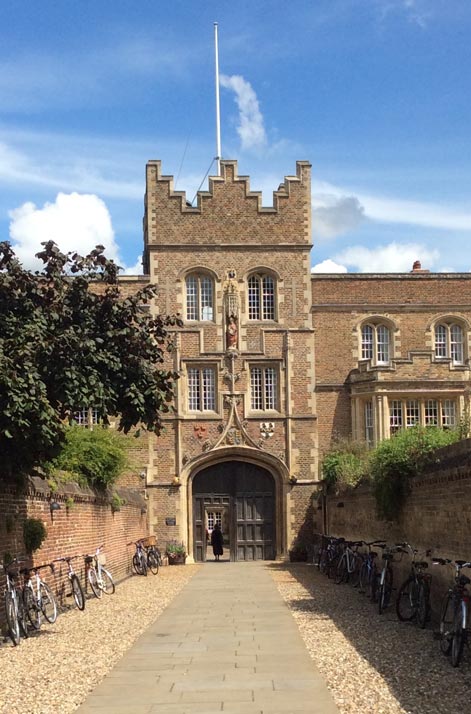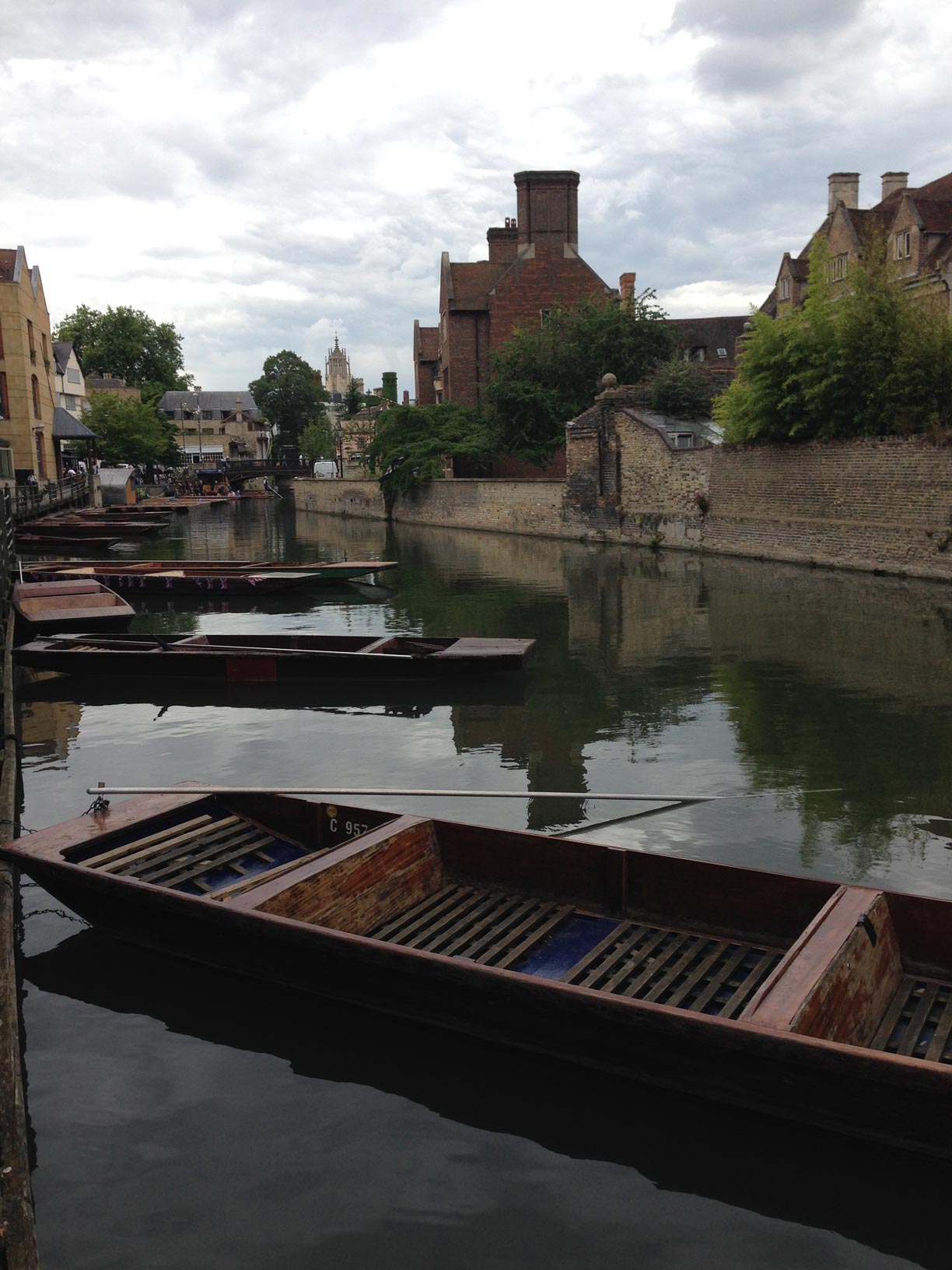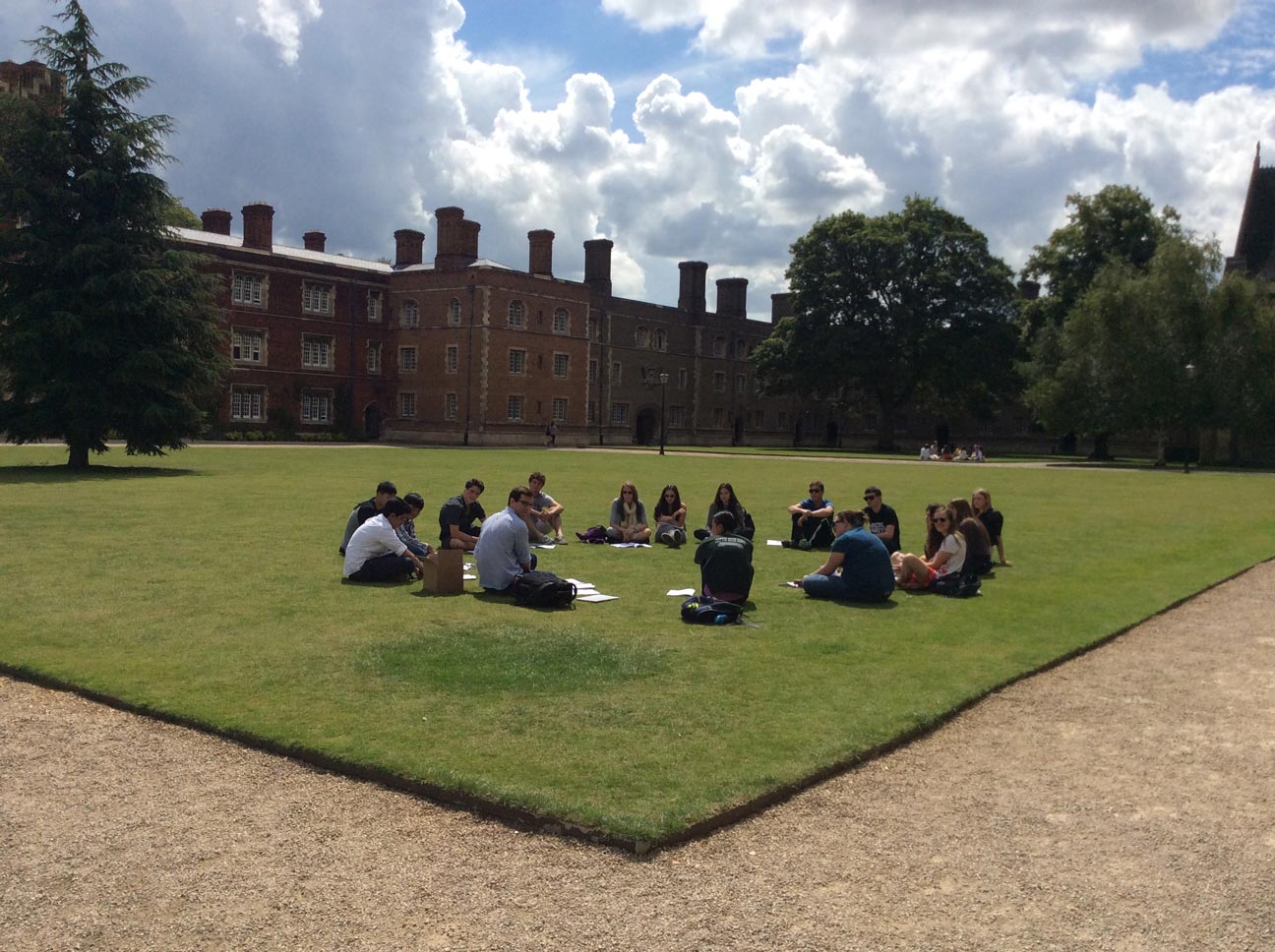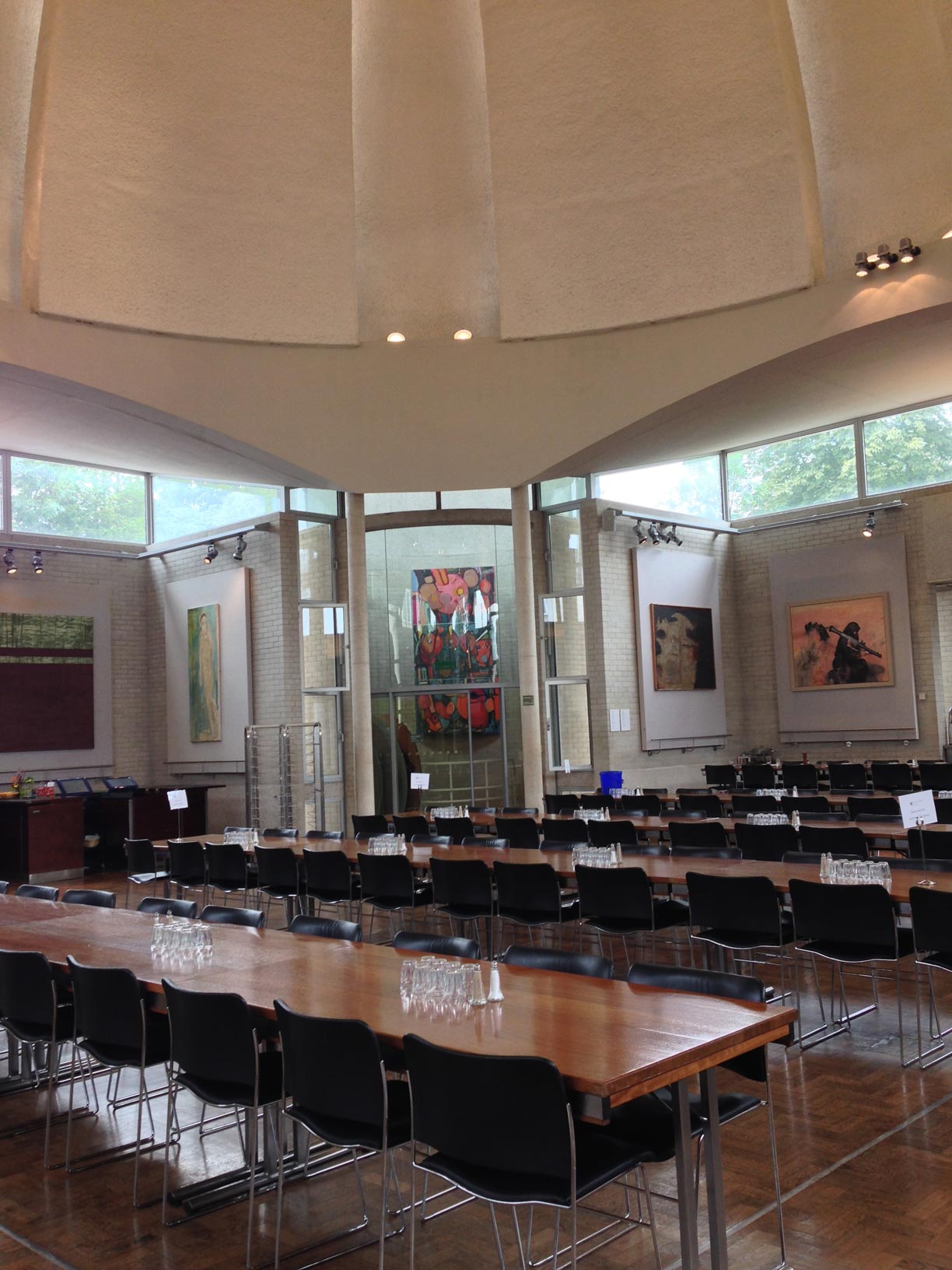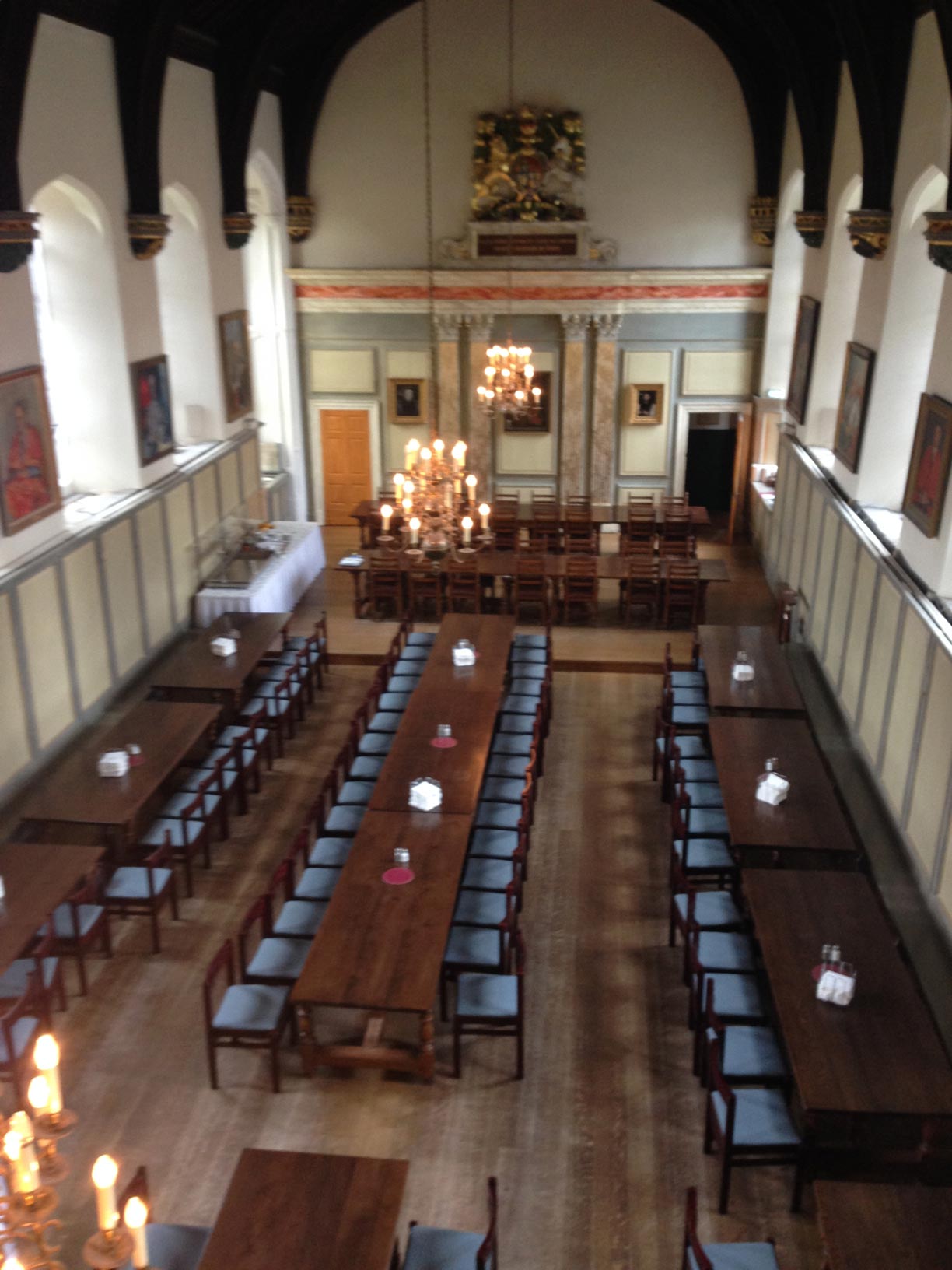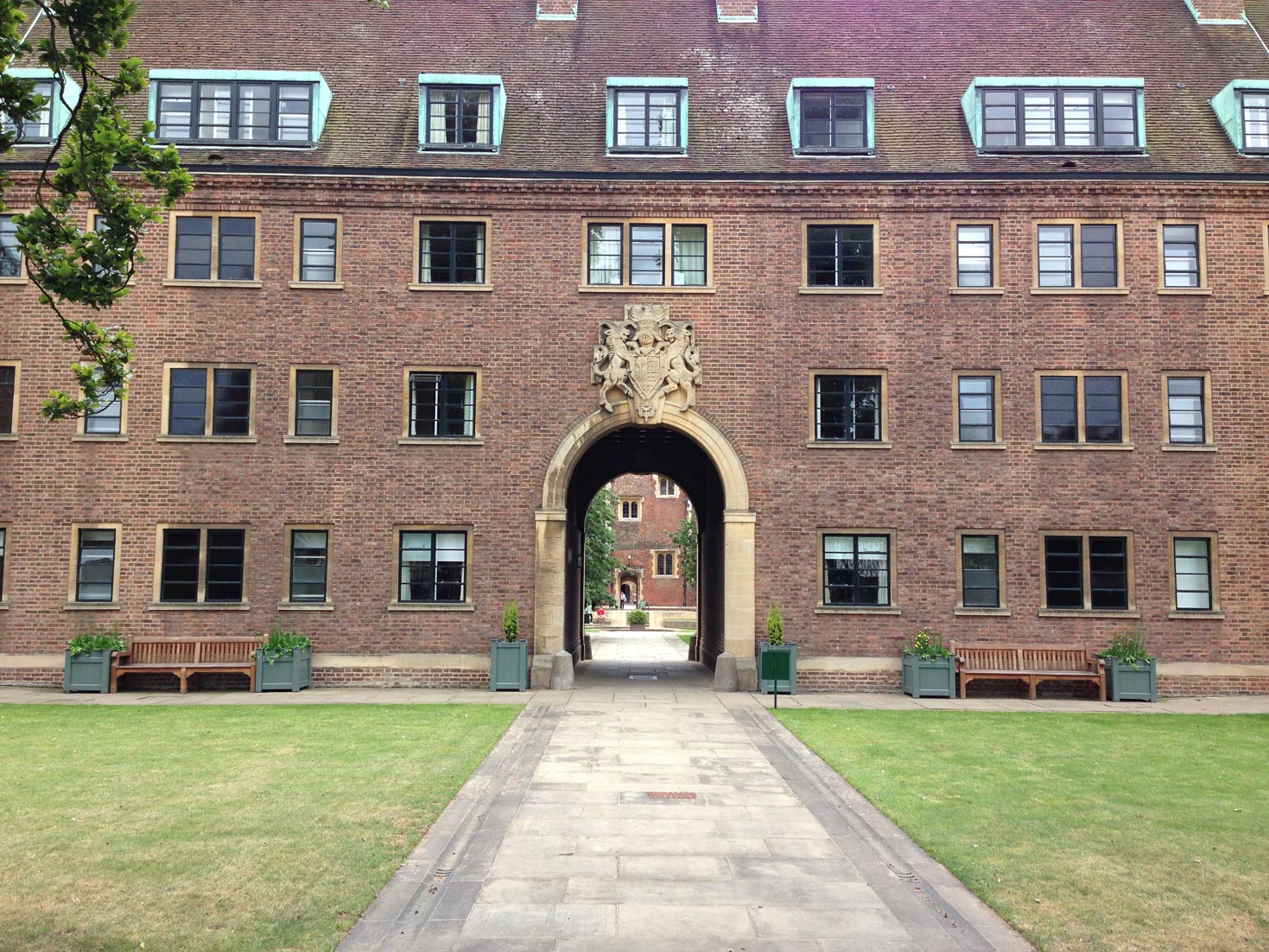Somehow, people rarely mention Cambridge without referencing Oxford, as if Cambridge could not exist without it. That’s actually true! Cambridge was founded by several Octagonians (also known as Oxford alums) in 1209. While historical records show that conflicts between Oxford University and its townspeople served as the impetus for the departure of several priest-scholars to find a new location for a new approach to academia, some scholars attribute their quest to the perception that Oxford was too stuffy and formal! “A loose group of liberal-thinking academics founded Peterhouse College,” Cambridge’s first college, according to alum Gillean Denny, a Ph.D. in Architecture.
The city of Cambridge is somewhat closer to London than Oxford (40-minute train ride vs. 60-minute), but it is smaller, and does not attract tourists in the same way. The center of town is more pedestrianized, quainter, and has a less commercial atmosphere. The colleges within Cambridge University own all the property in town, and have intentionally preserved the small village feel.
Similarities between Cambridge and Oxford
Cambridge shares many of the academic approaches of Oxford, including the following:
- Independently-run colleges within each University
- 3-year undergraduate program
- Trimester structure in which each academic year has three terms
- Teaching is centered around small discussions with a professor and one to three students, called “supervisions” at Cambridge and “tutorials” at Oxford
- Most colleges offer most academic subjects, but subjects do vary among colleges
See our blog about Oxford’s colleges for more comprehensive discussion of these features.
Do You Need to Choose?
Yes! If you are interested in either Oxford or Cambridge, known collectively as “Oxbridge,” you must apply through the centralized UCAS (UK’s Universities and Colleges Admissions Service), and are limited to only one college within these universities. You apply to a specific “faculty,” or academic subject, for all three years of study.
Cambridge’s Unique Academic Strengths
Cambridge is #1 in the UK for producing PhDs, far ahead of Oxford. While both Oxford and Cambridge are rated among the top higher education institutions in the world for most of the subjects offered, Cambridge is ranked 1st for natural sciences and Oxford is ranked 1st for arts and humanities. A major factor in deciding which college to apply to should be your chosen course of study. Most courses of study are offered by both Oxford and Cambridge, with some exceptions. Cambridge does NOT offer PPE (Philosophy, Politics and Economics), the most popular major for international students; and Architecture is offered only at Cambridge, not Oxford.
From the start, Cambridge distinguished itself in applied mathematics, and continues to have a stellar reputation for new discoveries in mathematics and sciences. Leading Cambridge scholars who significantly advanced the fields of math and science include Sir Isaac Newton, Sir Francis Bacon, Charles Darwin, Crick & Watson (who first modeled DNA), Jane Goodall (the chimpanzee expert), Niels Bohr (the atom identifier), and Alan Turing (the father of modern computing). Cambridge is also, notably, the birthplace of Dolly the Sheep!
Needless to say, Cambridge lays claim to brilliant thinkers in other fields as well, including economics (John Keynes and Milton Friedman), music (Radiohead), literature (W.M. Thackeray, Vladimir Nabokov, C.S. Lewis and Michael Crichton), and acting (Emma Thompson, Rachel Weisz, Thandie Newton and John Cleese).
Cambridge is organized into six Schools:
- Arts & Humanities
- Humanities & Social Sciences
- Biological Sciences
- Physical Sciences
- Technology
- Clinical Medicine
Cambridge’s structure contrasts with Oxford’s four divisions: Humanities; Mathematical, Physical & Life Sciences, Medical Sciences and Social Sciences. Perhaps Cambridge’s depth in math and science is reflected in having three separate academic units for Biological Sciences, Physical Sciences and Technology
In 2000, Cambridge formed a partnership with the Massachusetts Institute of Technology (MIT), called the Cambridge-MIT Institute (CMI) “to explore how academics, industrialists and educators might work together to stimulate competitiveness, productivity and entrepreneurship.” The partnership has led to groundbreaking research and the founding of new companies, such as OrthoMimetics, which brings to market products for regenerative medical technologies. In contrast, Oxford formed a collaboration with Princeton University in 2001, in areas such as international affairs and music.
Whether you decide to apply to college in the United States or United Kingdom, it’s important to research each university thoroughly in order to make sure it offers the features you need. And if you need any help, don’t hesitate to contact Collegiate Gateway – we’re always happy to help!

